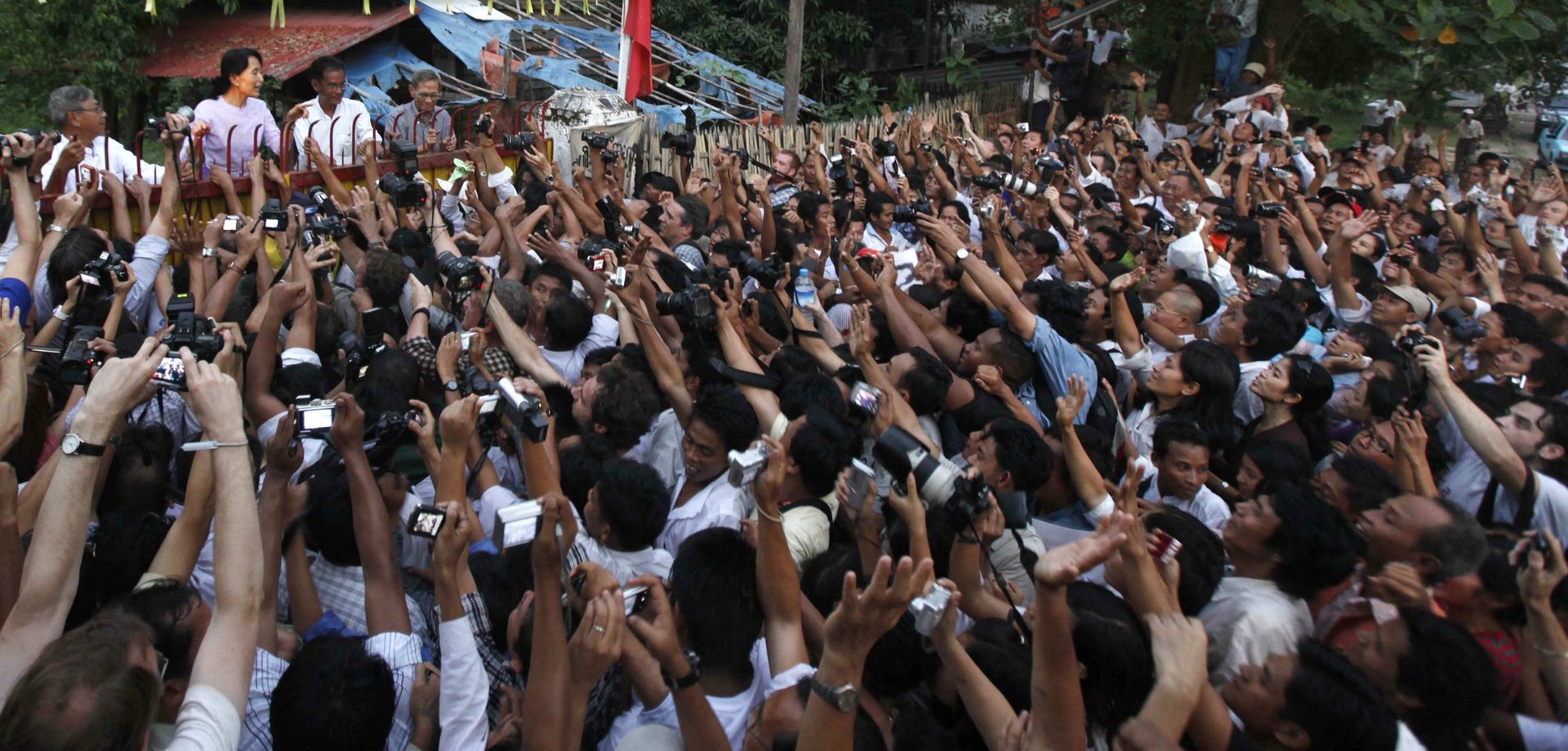Myanmar’s Aung San Suu Kyi wants to be president—but getting there is another story
Aung San Suu Kyi, Nobel Peace Prize winner and Myanmar political icon, said on Thursday for the first time that she wants to be president. “If I pretended that I didn’t want to be president I wouldn’t be honest,” Suu Kyi said at a meeting of the World Economic Forum in Myanmar’s capital Nay Pyi Taw. “And I would rather be honest with my people than otherwise.”


Aung San Suu Kyi, Nobel Peace Prize winner and Myanmar political icon, said on Thursday for the first time that she wants to be president. “If I pretended that I didn’t want to be president I wouldn’t be honest,” Suu Kyi said at a meeting of the World Economic Forum in Myanmar’s capital Nay Pyi Taw. “And I would rather be honest with my people than otherwise.”
Honesty in politics is always welcome. But there are some significant problems to overcome first.
Under the current constitution, Suu Kyi’s marriage to a foreigner—the late British author Michael Aris—and her two children in England bar her from becoming president. And Myanmar has one of the world’s most change-resistent constitutions—amending it would require 75% parliamentary approval, and 25% of the seats automatically go to her former jailers and current political opponents in the military.
Aung San Suu Kyi holds a role similar to Nelson Mandela after he was released by South Africa’s apartheid regime. But it’s much harder to be adored as a practicing politician. In particular she has shown the strain in addressing recent horrific ethnic violence against a Muslim minority group known as the Royhingya. After months of pressure from fellow human rights advocates, she took a stand against a government policy to curb the Rohingya population. Yet the policy is hugely popular among the Buddhist majority that she would need in her corner for a presidential run.
When asked about her chances this week, Suu Kyi said: “I don’t believe in indulging in optimism. Let me put it this way—I have always believed that hope has to be backed up by endeavor.” Changing the Myanmar constitution and achieving a delicate balance between human rights and the desires of the majority will be a substantial endeavor indeed.